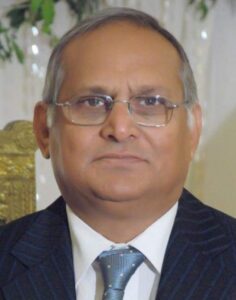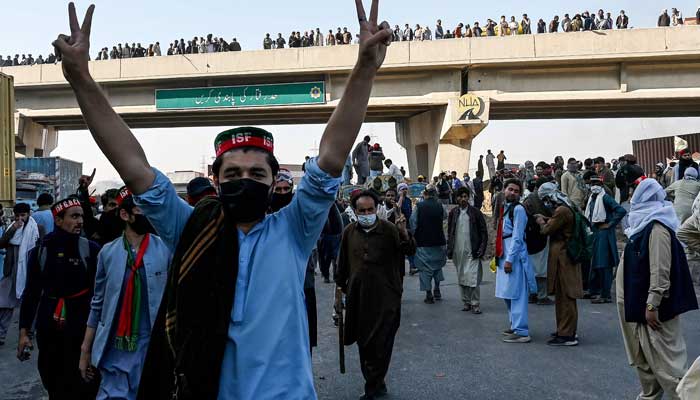By Ghulam Haider Shaikh

The recent wave of political unrest in Pakistan took a sharper turn as Pakistan Tehreek-e-Insaf (PTI) staged a protest amid a crackdown involving raids and dozens of arrests across the country. Interestingly, despite the tense political atmosphere and the public expectation of a strong address, Khyber Pakhtunkhwa Chief Minister Ali Amin Gandapur refrained from delivering a speech at the event. His silence, combined with the ongoing government response, raises crucial questions about the direction of political engagement in Pakistan.
PTI’s claim of mass arrests ahead of their protest cannot be ignored lightly. While maintaining law and order is a state responsibility, the frequent use of force and preventive detentions undermines the spirit of democratic expression. The right to peaceful protest is not a privilege but a fundamental constitutional guarantee. It is concerning if political differences are routinely handled through pressure tactics rather than open dialogue. The shrinking space for political dissent adds to Pakistan’s fragile democratic narrative.
On the other side, Gandapur’s decision not to address the protest, especially as a sitting Chief Minister, introduces a layer of complexity. Was it a strategic silence, internal party caution, or a reflection of political fatigue? While PTI leaders have often relied on fiery rhetoric, the absence of a leading voice at this protest could either suggest evolving political maturity or growing disunity within the party ranks. Regardless of interpretation, the moment was notable.
Moreover, this development must also be seen in the broader context of civil-military tensions and institutional imbalance. Pakistan’s political culture has long suffered from cycles of confrontation, where political actors frequently attempt to outmaneuver each other with the backing of power centers. Instead of creating consensus or enabling governance, such cycles often breed instability. Political leaders, whether in government or opposition, must prioritize democratic norms over short-term tactical gains.
What remains vital is for all stakeholders to recommit to constitutionalism and rule of law. Protest movements should not be criminalized, and state institutions must not be politicized. Similarly, opposition parties must maintain discipline and maturity while expressing dissent. Street politics may carry symbolic power, but it cannot replace legislative and institutional engagement as the true forum for political struggle.
In conclusion, the events surrounding PTI’s recent protest show that Pakistan is still searching for a functional political equilibrium. Both restraint and action must be grounded in democratic values. As the country navigates its deepening political divide, it is imperative for all sides to exercise caution, dialogue, and respect for dissent — only then can Pakistan’s democracy move from survival to strength.

